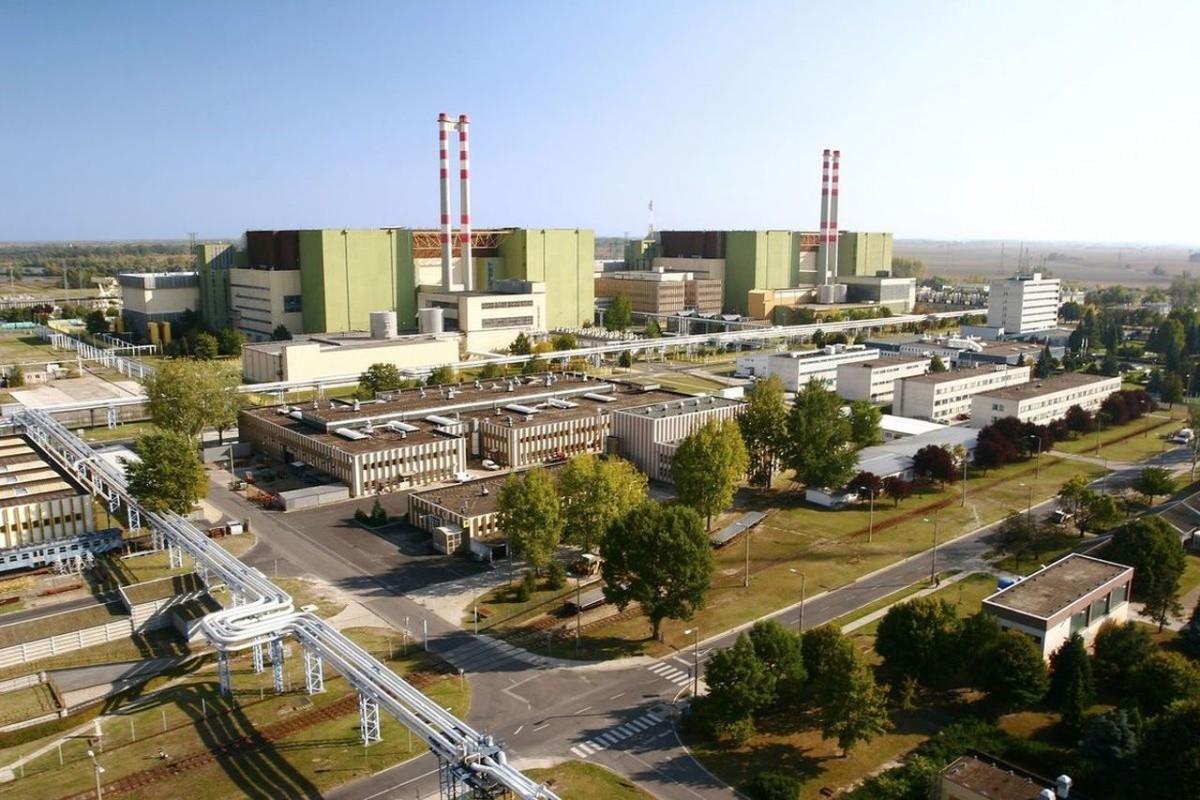 Attila Steiner, Secretary of State for Energy at Hungary’s Ministry of Technology & Industry, introduced a bill at a recent meeting of the state assembly (unicameral parliament), proposing that Paks NPP should be authorised to operate for an additional 20 years.
Attila Steiner, Secretary of State for Energy at Hungary’s Ministry of Technology & Industry, introduced a bill at a recent meeting of the state assembly (unicameral parliament), proposing that Paks NPP should be authorised to operate for an additional 20 years.
Currently, Paks NPP, built according to the Soviet design, operates four power units with VVER-440 reactors. In July, Technology & Industry Minister László Palkovics told a press conference that Hungary would assess costs and feasibility of further life extension for the plants, which were built between 1982 and 1987. Their 30-year operating period was extended by 20 years between 2012 and 2017, so they are scheduled to close between 2032 and 2037.
“[The conflict] in Ukraine, the price hikes caused by the misguided sanctions policy of Brussels, and the energy shortages that have engulfed the entire continent have made the role of power plants like the Paks nuclear power plant even more important,” Steiner said. He added that the Paks NPP had proved its reliability and safety, while generating almost half of Hungary’s electricity. He noted that while closure of the units “may seem like a long way off, ensuring energy security requires long-term planning”. Consequently, the authorities plan to extend the permit for operation of the reactors of the nuclear for another 20 years until 2052-2057.
Extending the lifespan of the units will follow a long preparatory procedure which will include talks with the governments of neighbouring countries, gathering information from international partners and signing a cooperation agreement with the International Atomic Energy Agency (IAEA), he added. All the nuclear licencing procedures will be carried out by the Hungarian Atomic Energy Authority (HAEA) which will carry out detailed inspections.
Meanwhile administrative changes are underway in Hungary’s energy sphere. Gergely Gulyás, the Minister in charge of the Prime Minister's Office, announced on 14 November that László Palkovics would be stepping down and that the Ministry of Technology and Industry (TIM) would be restructured and would no longer be responsible for energy. Csaba Lantos Csaba Lantos, chairman of the board of trustees of the Kálmán Széll Foundation, is expected to be the new Minister of Energy. Telex reported that the imminent government reshuffle was the result of growing pressure on Prime Minister Viktor Orbán to establish a separate Energy Ministry in view of the difficult energy situation in Europe.
Plans for new nuclear units at the Paks NPP are reportedly no affected by preparations for life extension of the existing units.The Hungarian Parliament in 2009 approved the construction of two new units. The Paks II project was launched in 2014 by an inter-governmental agreement between Hungary and Russia for two VVER-1200 reactors (units 5&6) to be supplied by Rosatom. The contract was supported by a Russian state loan to finance the majority of the project. HAEA issued a site licence in 2017 and approval also came from the European Commission that the new plant's effects on competition would be acceptable. Preparatory groundwork began in 2021.
Hungary’s Minister of Foreign Affairs and Foreign Economic Relations, Péter Szijjártó and Director General of Rosatom Alexei Likhachev on 10 November discussed implementation of the Paks-II project at a meeting in Samarkand of the Organisation of Turkic States, in which Hungary has an observer status. Szijjártó expressed confidence that the project would go ahead as planned by 2030.
“Today in Samarkand, we reviewed the state of affairs with Rosatom Director General Alexei Likhachev and agreed on the steps that we must take in the coming weeks so that we have two new power units of the Paks NPP by the end of the decade,” Szijjártó said. "Hungary, to put it mildly, is not rich in mineral resources, so nuclear energy will be able to ensure our independence from completely senseless changes in the international energy market and the rapid rise in energy prices," he added. "The expansion of the Paks nuclear power plant is in our strategic interests and our national security interests. So far, we have been able to prevent Brussels from imposing sanctions [against Russia] on our nuclear developments, and we will continue to do so in the future." Szijjártó added.
Image: The Paks nuclear power plant






